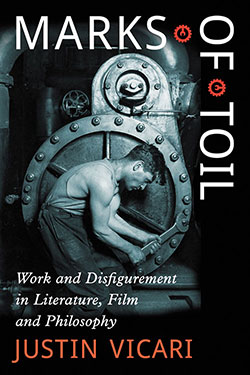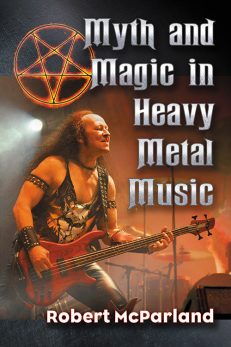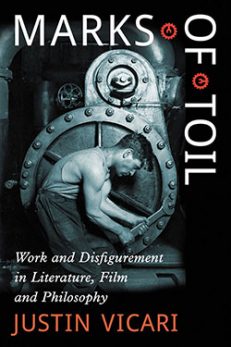Marks of Toil
Work and Disfigurement in Literature, Film and Philosophy
$29.95
In stock
About the Book
Are people nothing more than their physical capital—what their bodies can produce and provide? This philosophical treatise examines the idea of mutational bodies as it has appeared in fiction and cinema since the industrial era, theorizing that capitalism and other modern collective systems require transformations both literal and figurative for the individual to survive. Infringements on individualism include both the concept of eternity, which asks that we resign ourselves to life and death as endless waiting, and the Hegelian dialectic itself, which has been reversed by neoconservative thinkers into a new conviction that the rich are oppressed by the poor. In response, this work suggests the inauguration of a post-dialectic “ethical materialism.” Subjects considered include the films of Charlie Kaufman and Stan Brakhage, the fiction of Philip Roth and Don DeLillo, the feminist art criticism of Lucy Lippard, and the meanings of virtuality and the internet.
About the Author(s)
Bibliographic Details
Justin Vicari
Format: softcover (6 x 9)
Pages: 216
Bibliographic Info: notes, bibliography, index
Copyright Date: 2014
pISBN: 978-0-7864-9588-7
eISBN: 978-1-4766-1704-6
Imprint: McFarland
Table of Contents
Preface 1
Introduction: We Halcyonians 7
1. Motifs of Physical Capital and Bodily Transformation 17
2. Eternity and the Body 43
3. Fictional Bodies of the Great Depression 57
4. The Dean’s Laughing Fit 83
5. The Road to Kotka at Night 97
6. The Aesthetics of Limbo 107
7. Window Babies 118
8. Surplus and Sacrifice 129
9. This Animal Which Is Not One 141
10. Dialectics at an Impasse 167
(In)conclusion: On the Evanescent 179
Chapter Notes 191
Works Cited 201
Index 205





